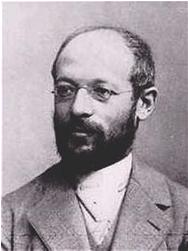A Quote by Georg Simmel
Nothing more can be attempted than to establish the beginning and the direction of an infinitely long road. The pretension of any systematic and definitive completeness would be, at least, a self-illusion. Perfection can here be obtained by the individual student only in the subjective sense that he communicates everything he has been able to see.
Related Quotes
But to look back from the stony plain along the road which led one to that place is not at all the same thing as walking on the road; the perspective to say the very least, changes only with the journey; only when the road has, all abruptly and treacherously, and with an absoluteness that permits no argument, turned or dropped or risen is one able to see all that one could not have seen from any other place.
What is the purpose for which Masonry exists? Its ultimate purpose is the perfection of humanity. Mankind it self is still in a period of youth. We are only now beginning to acquire a consciousness of the social aim of civilization, which is man's perfection. Such perfection can never end with physical perfection, which is only the means to the end or spiritual perfection.
The individual's habits of thought make an organic complex, the trend of which is necessarily in the direction of serviceability to the life process. When it is attempted to assimilate systematic waste or futility, as an end in life, into this organic complex, there presently supervenes a revulsion.
Realisation of love can never come so long as there is the least desire in the heart, or what Shri Ramakrishna used to say, attachment for Kâma-Kânchana (sense-pleasure and wealth). In the perfect realisation of love, even the consciousness of one's own body does not exist. Also, the supreme Jnana is to realise the oneness everywhere, to see one's own self as the Self in everything. That too cannot come so long as there is the least consciousness of the ego (Aham).
Children are all more or less little monkeys in that they imitate everything they see. If their mother treats them exactly as she does her visitors they in turn play "visitor" to perfection. Nothing hurts the feelings of children more than not being allowed to behave like grown persons when they think they are able.
What I bring - my team and I, because it's not only me - is this sense of elegance and casualness, and no pretension. There's also a sense of loyalty - loyalty to my customers, but also loyalty from my staff. Also, I think a sense of perfection; I'm a bit of an obsessed freak with perfection. I think I bring craziness sometimes, because if there is someone who's going to dare do something crazy, it's me.
If any man would come after me, let him deny himself." The disciple must say to himself the same words Peter said of Christ when he denied him: "I know not this man." Self-denial is never just a series of isolated acts of mortification or asceticism. It is not suicide, for there is an element of self-will even in that. To deny oneself is to be aware only of Christ and no more of self, to see only him who goes before and no more the road which is too hard for us. Once more, all that self denial can say is: "He leads the way, keep close to him.
Always remember deep in your heart that all is well and everything is unfolding as it should. There are no mistakes anywhere, at any time. What appears to be wrong is simply your own false imagination. That's all. But we live in a universe of Brahman, of Absolute Reality, self -contained Consciousness, where there's perfection, perfect life, perfect bliss, perfect being. That perfection knows nothing about wrong and right, good and bad, happy and sad. It knows only itself as Perfection. And you are That.
Language can't describe reality. Literature has no stable reference, no real meaning. Each reader's interpretation is equally valid, more important than the author's intention. In fact, nothing in life has meaning. Reality is subjective. Values and truths are subjective. Life itself is a kind of illusion. Blah, blah, blah, let's have another scotch.
Everything is a meaningless struggle against nothing and when people say that the world has become a better place that is a false development-optimism. Nothing exists which ever becomes better. Everything stays the same. Somehow, there is nothing. That is so sad. Nothing to come to. Everything is an illusion. A very sweet illusion.
The Zen Master warns: 'If you meet the Buddha on the road, kill him!' This admonition points up that no meaning that comes from outside of ourselves is real. The Buddhahood of each of us has already been obtained. We need only recognize it. Philosophy, religion, patriotism, all are empty idols. The only meaning in our lives is what we each bring to them. Killing the Buddha on the road means destroying the hope that anything outside of ourselves can be out master. No one is any bigger than anyone else. There are no mothers or fathers for grown-ups, only sisters and brothers.






































